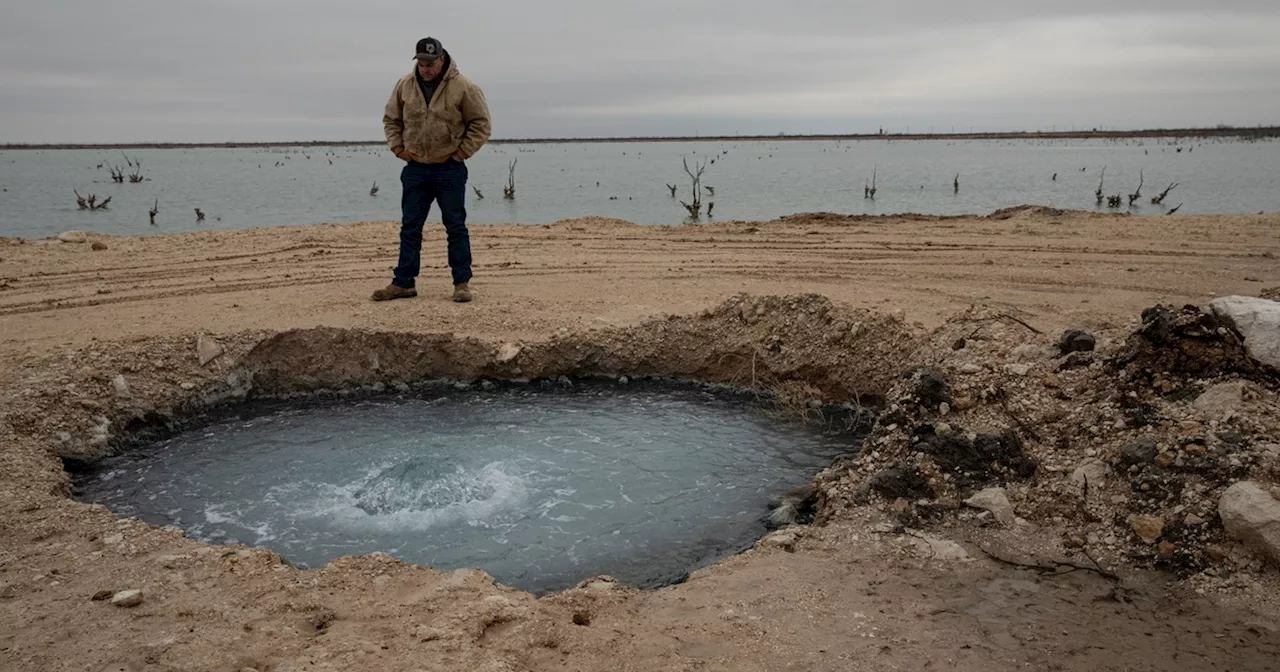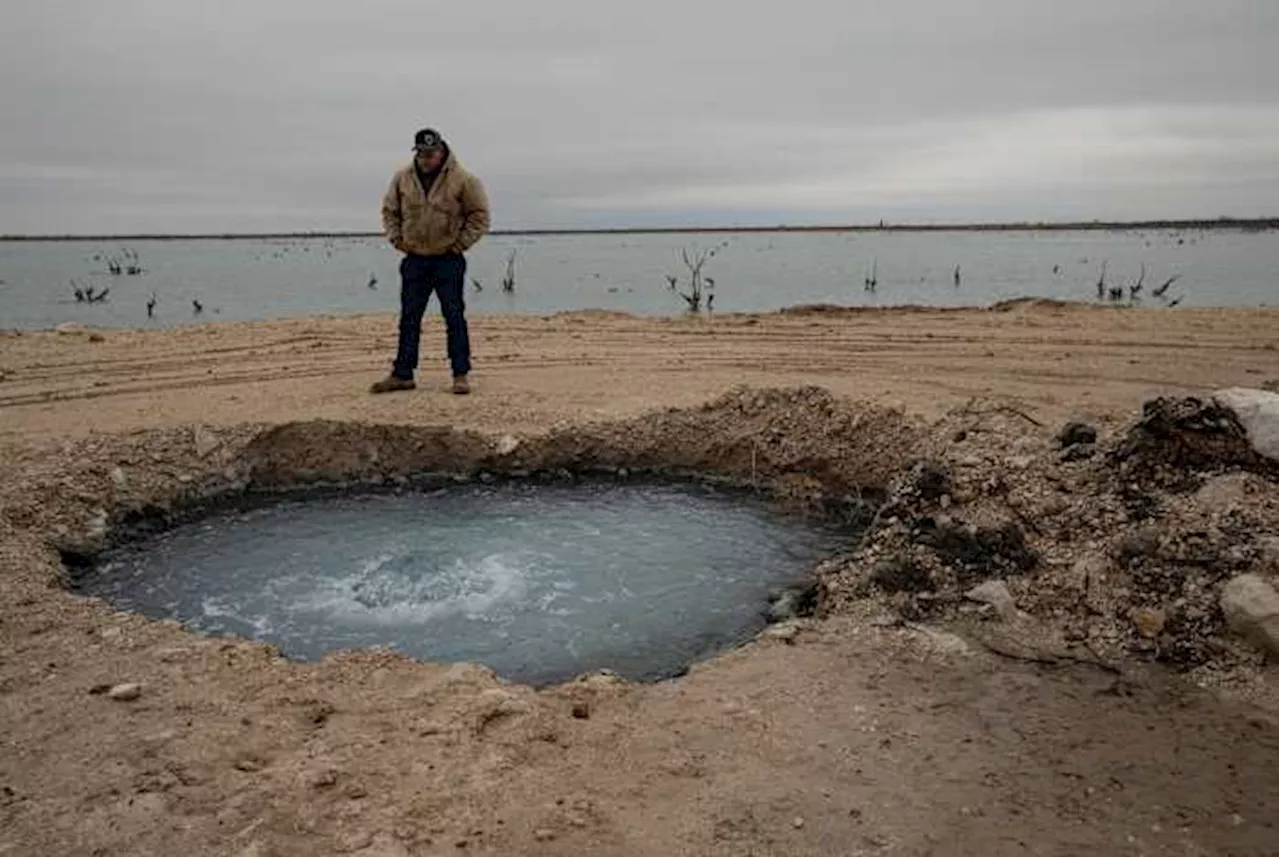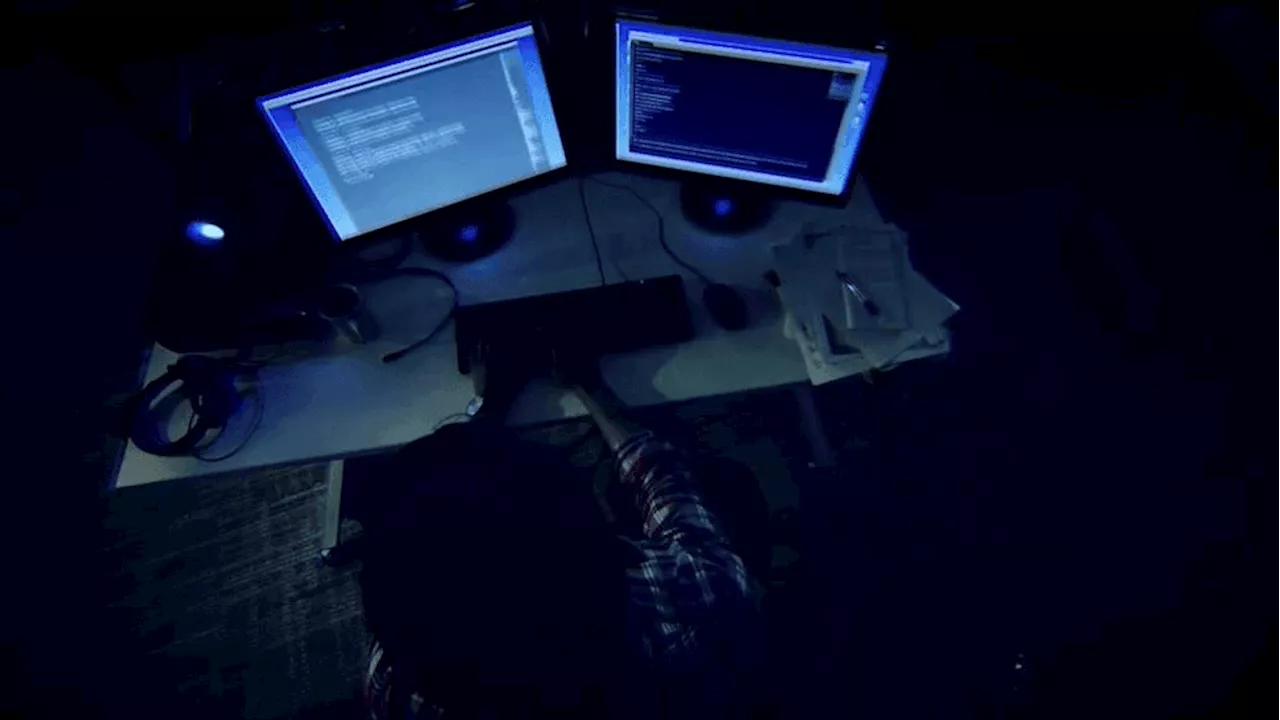Thousands of abandoned oil wells, known as P-13 wells, leak pollutants into the Texas soil and threaten the state's water resources. Despite efforts to address the problem, funding and bureaucratic hurdles remain major obstacles.
In arid West Texas, water seeps and bubbles from old wells, sometimes carrying oil, brackish water or other pollutants to the surface. But the real danger lies underground — where oil, salt and toxic minerals could migrate into the aquifers that supply water to cities, farms and ranches. These leaky wells are called P-13 wells, named for a Texas Railroad Commission form. They’re the result of oil exploration that began nearly a century ago.
Wildcatters searching for oil have punched thousands of holes into the Texas soil in search of black gold over the past 150 years. When wells proved unproductive or dry, companies often transferred ownership to landowners who repurposed them as water wells. Today, the state has recorded 1,915 P-13 wells, but many more likely exist, undocumented and deteriorating. Over time, some of these wells have turned into environmental disasters. In Pecos County, the 60-acre Lake Boehmer formed when an abandoned well began releasing large amounts of salty brine water to the surface more than two decades ago — and it’s still leaking. Reports have found that the lake emits hydrogen sulfide, a toxic gas that can be fatal at high concentrations, and is filled with heavy metals like arsenic. In 2023, Texas lawmakers attempted to address the growing problem by passing House Bill 4256, which created the Leaking Water Wells Grant Program under the Texas Commission on Environmental Quality and committed $10 million to help plug leaking water wells in eligible rural counties. Two years later, none of that money has been distributed. The TCEQ’s rulemaking process still isn’t finished; grants are expected to be available by this summer. Public comments on the program closed this week. Critics argue that $10 million is a drop in the bucket compared to the size of the problem. Plugging a single well can cost hundreds of thousands of dollars, and in extreme cases like Lake Boehmer, the cost could be in the millions. Hawk Dunlap, a well control specialist for a private company who has plugged wells for decades, says sealing P-13 wells is far more complex than simply filling them with concrete. “There is not going to be an easy fix,” he said. “Each well is going to be very specific in how it’s addressed and in my professional opinion it’s gonna be almost like flying blind.” The cost of properly plugging a well varies widely. The TCEQ said the cost is influenced by many factors, such as the well depth and the local hydrogeology. “We do not know how much it will cost to plug each well, so we cannot determine how many wells could be plugged under this program,” said Ricky Richter, a spokesperson for TCEQ. Texas has thousands of orphan oil and gas wells that need plugging. The Railroad Commission, which regulates oil and gas wells in the state, defines these as wells that have been inactive for a minimum of 12 months and have no owner. Caught in a catch-22 The agency uses state and federal funds to plug them, but it doesn’t include P-13 wells on its list because they’re no longer classified as oil wells. That stance has led to lawsuits, legislative debates and frustration among local officials and environmental groups. For example, the Middle Pecos Groundwater Conservation District has repeatedly asked the Railroad Commission over the years to include 40 wells — some of which are classified as P-13 wells — to its list of orphan wells eligible for plugging with federal money, but the commission denied the request. “I mean, nobody cares about West Texas. It’s just heartbreaking,” said Ty Edwards, the district’s manager. “(Landowners) cannot use any (federal) funds to plug the well unless it’s on that (Railroad Commission) list. They also can’t apply for federal funds unless it’s on the list.” Virginia Palacios, executive director of the watchdog group Commission Shift, said the agency is sidestepping its responsibility to plug the Lake Boehmer well and other P-13 sites. “It’s crazy, because these are some of the most intense contamination situations that we have in the state right now, and they’re just choosing not to make it their problem,” she said. R.J. DeSilva, a spokesperson for the Railroad Commission, said the Boehmer well has been out of their jurisdiction since 1951 and is not the agency’s responsibility, unlike oil and gas wells they have plugged in the region. He added that state law clearly states that the agency does not have authority over water wells like the ones that caused Lake Boehmer. Not ‘gonna be cheaper’ The groundwater conservation district has filed a complaint against the Railroad Commission, saying that wells drilled for oil and gas should be plugged by the commission, even if they were later converted to water wells. Meanwhile, it’s turning to the TCEQ program to get the wells plugged, but Edwards worries that the money will be exhausted quickly and only cover a small number of wells.
P-13 Wells Leaking Wells Groundwater Contamination Texas Water Supply Environmental Disaster Lake Boehmer Railroad Commission Texas Commission On Environmental Quality Orphan Wells
United States Latest News, United States Headlines
Similar News:You can also read news stories similar to this one that we have collected from other news sources.
 Texas struggles to plug old oil wells leaking tainted waterTwo years after lawmakers created a $10 million program to address leaking wells in rural counties, none of the money has been distributed.
Texas struggles to plug old oil wells leaking tainted waterTwo years after lawmakers created a $10 million program to address leaking wells in rural counties, none of the money has been distributed.
Read more »
 Leaking Brine Wells Threaten Texas AquifersThousands of old oil wells, known as P-13 wells, leak salty brine water in West Texas, potentially contaminating underground aquifers. The Texas Commission on Environmental Quality received $10 million to plug these wells, but the rulemaking process is still ongoing. Critics argue that the funding is insufficient to address the widespread issue.
Leaking Brine Wells Threaten Texas AquifersThousands of old oil wells, known as P-13 wells, leak salty brine water in West Texas, potentially contaminating underground aquifers. The Texas Commission on Environmental Quality received $10 million to plug these wells, but the rulemaking process is still ongoing. Critics argue that the funding is insufficient to address the widespread issue.
Read more »
 Texas governor announces Texas Cyber Command to bolster cybersecurity effortsGovernor Greg Abbott announced an emergency item to establish the Texas Cyber Command during his State of the State address, aiming to enhance cybersecurity acr
Texas governor announces Texas Cyber Command to bolster cybersecurity effortsGovernor Greg Abbott announced an emergency item to establish the Texas Cyber Command during his State of the State address, aiming to enhance cybersecurity acr
Read more »
 Houston, Texas (US) job with The University of Texas MD Anderson Cancer CenterA full-time postdoctoral fellow position is available in Dr. Ye Zheng’s lab at the Department of Bioinformatics and Computational Biology, the University of Texas MD Anderson Cancer Center. Dr. Zheng's lab works on problems at the interface of statistical, computational and biomedical sciences.
Houston, Texas (US) job with The University of Texas MD Anderson Cancer CenterA full-time postdoctoral fellow position is available in Dr. Ye Zheng’s lab at the Department of Bioinformatics and Computational Biology, the University of Texas MD Anderson Cancer Center. Dr. Zheng's lab works on problems at the interface of statistical, computational and biomedical sciences.
Read more »
Texas reports new measles outbreak in West TexasThe outbreak in Gaines County, with a population of about 22,000, has grown since two cases were reported in January.
Read more »
 Greg Abbott's Key Priority Gets Back-to-Back WinsSchool choice gains momentum in Texas and federally, a win for Texas Governor Greg Abbott.
Greg Abbott's Key Priority Gets Back-to-Back WinsSchool choice gains momentum in Texas and federally, a win for Texas Governor Greg Abbott.
Read more »